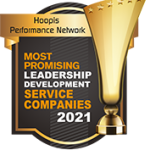The Formula for Cross-Selling Success

High-performing, growth-oriented agencies and firms benefit from a disciplined and strategic cross-selling plan.
To “cross-sell” is to sell related or complementary products to an existing customer. Cross-selling is one of the most effective methods of marketing.
Cross-selling products and services to existing clients is a primary method of generating new revenue for many businesses, including financial professionals. This is perhaps one of the easiest ways to grow your business because you have already established a relationship with your clients and are familiar with their needs and objectives. Effective cross-selling is a good business practice and is a useful financial- planning strategy as well.
Don’t confuse “up-selling” with cross-selling. Up-selling is the act of selling a more comprehensive or higher-end version of a product. Cross-selling is the act of selling a different product to provide an additional benefit to the customer.
If you are serious about establishing a results-oriented cross-selling system, here are 10 strategies that will set you on the path to success:
1. Develop a Plan
As with any successful initiative, you must develop and follow a plan. Cross-selling success begins with a strategy map that responds to the questions “Why? When? How?”
2. Understand the Client’s Concerns
The biggest obstacle to cross-selling success is not knowing enough about the client. Although agents and advisors have vast data from fact-finders and other sources, most lack a “discovery process” to understand each customer’s goals, passions and struggles. High-performing, organic-growth agents and advisors understand the importance of uncovering customer issues to position cross-selling opportunities.
3. Fulfill Each and Every Promise
The foundation for cross-selling success requires you to excel on the initial project and then build on that success. You must solve the specific issue at hand before introducing a second initiative. You will consistently be rewarded for jumping over the bar with room to spare. Trust with clients is developed when they see an agent or advisor keeping every promise, without fail, over time.
4. Follow the Principle of Worthy Intent
Cross-selling experts always put the customer’s interests ahead of their own. Your cross-selling initiatives should always be focused on improving the performance of those you serve. When you do this, you are demonstrating “worthy intent.”
5. Focus on Connectivity
Cross-selling success involves connecting a subsequent sale to the initial engagement. It requires helping clients understand how decisions they make in one area uniquely position you and your team to expand your ability to assist them in other areas.
6. Know Your Capabilities and Limitations
To cross-sell effectively, you must feel confident with the products, services, and capabilities as well as the limitations of your organization. For example, if a client says, “I was thinking about working with another firm because it has ten times as many agents,” you could respond by saying, “I appreciate your concerns. We have every possible insurance and financial product covered in our firm with multiple experts. Our smaller firm is able to keep apprised of every detail and nuance about every client’s situation.” Reposition a prospect’s view of limitations as opportunities.
7. Trust Others in Your Firm
Cross-selling strategies often fail because people do not work together effectively. They have not learned to trust each other. To stimulate cross-selling success, consider bringing your associates together to build knowledge, trust, and respect. Consider a teaming arrangement that capitalizes on interdependence and the varying specialties and strengths of everyone on the team.
8. Streamline Your Customer Relationship Management
High-performing, organic-growth agencies use disciplined customer relationship management (CRM) systems that foster efficiency, credibility, intimacy, and knowledge. A customer must feel valued and understood before the cross-selling initiatives can bear fruit.
9. Master the Art of Listening

Far too often, agents and advisors spend too much time demonstrating their level of expertise in the sales process. Their presentations are self-serving, and customers tend to view them as “product dumps.” Cross-selling success begins and ends with the art of listening to the customer.
10. Benchmark Your Team’s Cross-Selling Performance
The success of your cross-selling plan requires that you measure and benchmark plan performance in a variety of ways. These include revenue generation, cross-selling hit ratios, and retention.
Cross-Selling Enables You to Nurture Existing Clients
A research study by Deloitte & Touche uncovered that the odds of selling a product or service to a new customer are generally about 15 percent, whereas the odds of selling to an existing customer is 5 percent. Plus, it costs five to eight times more to sell to a new customer than it does to sell to an existing customer. LIMRA studies report that the average buyer of life insurance will buy life insurance seven times during their lifetime. That’s why it is critical to nurture your existing clients and find additional ways to serve them by cross-selling. This can be accomplished in a number of ways, the easiest of which is newsletters, client events, and educational seminars. Using today’s technology to provide financial literacy learning with short educational videos and blogs has become one of the essential resources to enhance your value and communications.
Customer loyalty and trust are at an all-time low, and the cost of new customer acquisition is at an all-time high. Agents and advisors must appreciate the importance and value of a disciplined, strategic, and results-oriented cross-selling system.
Cross-Selling as a Barometer for Organic Growth
Cross-selling success is an important barometer for organic growth and profitability because it represents the revenue associated with each customer. As cross selling success improves, so do revenue, customer retention and the lifetime value of each customer.
As you and your firm successfully execute a cross-selling plan, you will gain enhanced knowledge about each customer. The accumulation of wisdom about customers is essential to a long-term and mutually beneficial relationship.
It is an essential strategy to build brand loyalty, increase revenues and drive profits. It’s the lifeblood of your business. Why? Because it increases customers’ reliance on you and decreases the likelihood that they will switch to a competitor. It is a critical performance indicator of an agency. High-performance “best practice” agents and advisors know why, when and how to cross-sell.
Also, cross-selling builds the knowledge of every person on your sales team. That, in turn, makes them more valuable to your clients and to your firm or agency. Once you investigate the potential benefits cross-selling can provide to your organization, you will see that it makes sense to prioritize cross-selling in your training and development efforts.
Contact Financial Services Educational Network (FSEdNet) to Learn How to Harness the Power of Cross-Selling
FSEdNet provides knowledge and skills training for management, producers, and staff in the financial services industry. We want to help you succeed and grow your business by placing the resources you need at your fingertips. Contact us today for your training and education needs and to learn more about how you can harness the power of Cross-Selling to help grow your business and increase your revenue.


